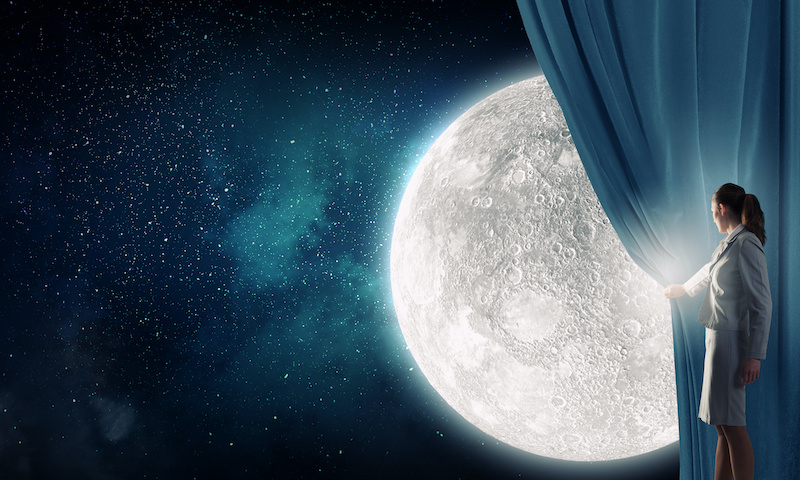A recent discussion with a person very close to me has resulted in me writing this article. Actually, it was more of a challenge, “You write a paper on how the moon affects your sleep then we will talk about it.” So here I am writing this article!
Does the moon really affect your sleep? This is a discussion that has been had for many, many years. Ancient Roman philosopher Pliny the Elder claimed that the moon could “penetrate all things” and theorized about its influence on tides, marine life, plants, animals, and human activity.
According to the Sleep Foundation, “compelling evidence suggests that lunar cycles may compromise sleep, with the full moon phase being most disruptive. One sleep study analysis found that the full moon was associated with worse sleep using several metrics. During this lunar phase, participants took five minutes longer to fall asleep, slept for 20 minutes less, took longer to reach REM sleep, experienced a 30% reduction in deep sleep, and reported reduced sleep quality.
Another study found that total sleep time during the full moon was reduced by 25 minutes while arousals and awakenings increased. However, participants in this study took longer to reach REM during the new moon, contradicting prior research. A third analysis reviewed data from 319 people undergoing a one-night sleep study. Those observed during a full moon had lower sleep efficiency, less deep sleep, and delayed time reaching REM sleep.
In perhaps the most extensive study on this topic, researchers analyzed sleep patterns in three indigenous Argentinian communities and 464 American college students living in a major city. Regardless of location and amount of artificial light exposure, all groups fell asleep later and slept for less time in the week preceding the full moon.” Sleep Foundation
The University of Washington states: “In a paper published Jan. 27 in Science Advances, scientists at the University of Washington, the National University of Quilmes in Argentina and Yale University report that sleep cycles in people oscillate during the 29.5-day lunar cycle: In the days leading up to a full moon, people go to sleep later in the evening and sleep for shorter periods of time. The research team, led by UW professor of biology Horacio de la Iglesia, observed these variations in both the time of sleep onset and the duration of sleep in urban and rural settings — from Indigenous communities in northern Argentina to college students in Seattle, a city of more than 750,000. They saw the oscillations regardless of an individual’s access to electricity, though the variations are less pronounced in individuals living in urban environments.” Urton, James
Healthline stated in their findings that “Dr. Alex Dimitriu, who is double board-certified in psychiatry and sleep medicine, said the moon most likely exerts its effect by an increase in evening or nighttime light. This might suppress melatonin (a sleep hormone), which affects the onset and duration of sleep. “According to this study, it does seem that there is a significant delay and decrease in total sleep time on nights leading up to a full moon,” said Dimitriu, founder of Menlo Park Psychiatry & Sleep Medicine.
“We know that light, whether artificial or natural — from the moon, or the setting sun — can have a suppressant effect on melatonin,”he said. “So it is plausible that moonlight could have a natural wake promoting effect.” Healthline
While it seems hard to believe, there is plenty of data supporting the idea of the moon affecting our sleep patterns. Don’t believe it, start tracking your sleep cycle and see for yourself? If nothing else, you will learn more about how well you sleep and for how long. Other factors that could play into skewing your results are artificial light and food sensitivities. But that is for another article!
The Full Study is linked here: https://www.science.org/doi/10.1126/sciadv.abe0465

